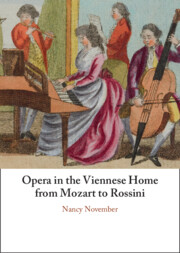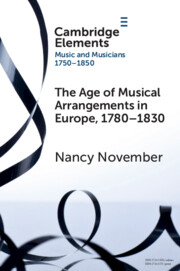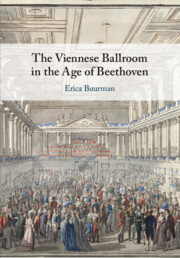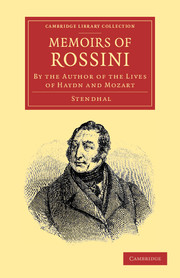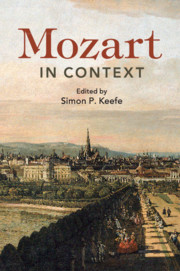Opera in the Viennese Home from Mozart to Rossini
Domestic musical arrangements of opera provide a unique window on the world of nineteenth-century amateur music-making. These arrangements flourished in especially rich variety in early nineteenth-century Vienna. This study reveals ways in which the Viennese culture of musical arrangements opened up opportunities, especially for women, for connoisseurship, education, and sociability in the home, and extended the meanings and reach of public concert life. It takes a novel stance for musicology, prioritising musical arrangements over original compositions, and female amateurs' perspectives over those of composers, and asks: what cultural, musical, and social functions did opera arrangements serve in Vienna c.1790–1830? Multivalent musical analyses explore ways Viennese arrangers tailored large-scale operatic works to the demands and values of domestic consumers. Documentary analysis, using little-studied evidence of private and semi-private music-making, investigates the agency of musical amateurs and reinstates the central importance of women's roles.
- Sheds fresh light on musical life in Vienna around 1800 and the flourishing culture of musical arrangement that brought opera into the home in the era before broadcasts and recordings
- Provides a new window on the reception of now-canonical music, as well as lesser-studied works produced in Europe around 1800
- Highlights the 'vocal' basis of much instrumental music at the turn of the nineteenth century
Reviews & endorsements
‘By focusing on arrangers and ‘end users,’ and by pairing cultural history with the examination of specific compositions, she succeeds in offering not ‘an ‘alternative’ history of opera, to balance a history that to date has been centred on public performance’ (p. 9), but rather ‘alternative histories’ that focus on private and semiprivate performances while including discussions of a range of impacts of public music making on more private musical activities.’ Rachel N. Becker, Notes: the Quarterly Journal of the Music Library Association
Product details
January 2024Hardback
9781009409803
268 pages
250 × 175 × 20 mm
0.67kg
Available
Table of Contents
- Introduction
- 1. Opera in the 'fruitful age of musical translations'
- 2. Kenner und Liebhaber: Meeting the domestic market
- 3. Female agency in the early nineteenth-century Viennese musical salon
- 4. Canon formation, domestication, and opera
- 5. Rossini 'as the Viennese Liked it'
- 6. Industry, agency, and opera arrangements in Czerny's Vienna
- Acknowledgements
- Bibliography.

